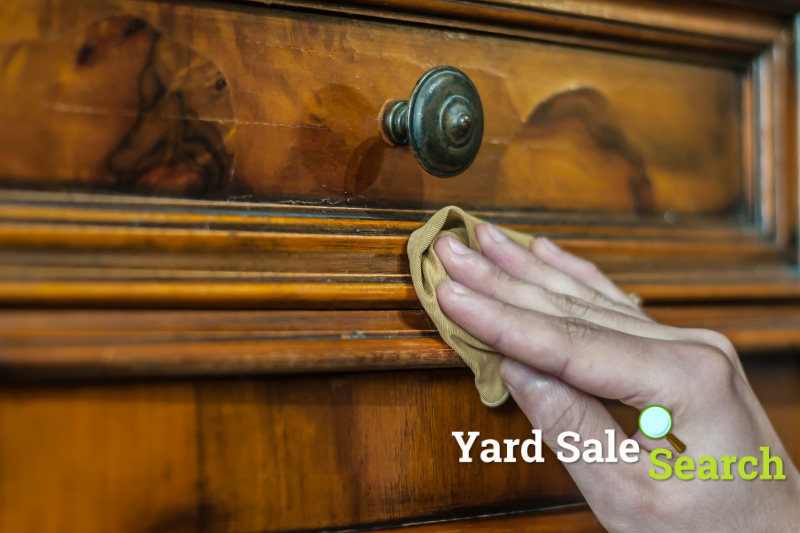They say you’ll never work a day in your life if you do what you love. If it weren’t for taxes, we might just agree! While work will always be work, however, we can certainly agree that it’s a lot more enjoyable if your work is also your passion. So, if your passion is antiquing and restoration, how do you make this your job?
While everyone’s road to starting a business will be unique, there are a few tips we can give out to make the journey a little bit smoother. Here are four steps to turning a passion for antiquing and restoration into a full-fledged business.
Step 1: Do Your Homework
The first step in any successful business startup is making a detailed gameplan. Not only will this help you craft a step-by-step guide specific to you and your business, it’ll also help you discover details that might have caught you by surprise otherwise, and help you avoid a disaster down the road. Ask yourself the important questions, like:
What exactly will your business be?
Antiquing and restoration, sure, but what specifically? There are an awful lot of restoration services that you may or may not be willing to offer, and knowing exactly what you are willing to offer (at least initially) can give you a better idea of what your business will look like. For example, the services you offer will be a glance into what equipment you’ll need and, consequently, what kind of space you need. If you’re planning on keeping things small-scale, you might be able to work out of a well-ventilated basement or garage. If you’re shooting bigger, however, you might need to look into a separate space. Rent, of course, leads us to the next question.
What will your costs be?
Again, this will depend a ton on the scale of your business. If you’re working out of your home, you probably won’t have to worry about rent. If you aren’t, however, the lease will play into the cost. If you are looking for a bigger space, you might be looking to take on more large-scale or valuable restorations, which means insurance is going to be an important investment. Larger scale also means more work—do you plan on hiring employees? If so, what do you have in mind for salaries?
Salaries, and what the general cost of your business turns out to be, will depend on how much revenue you’re able to take in. It’s important then to know who your target consumer base will be, then. Are you setting out to restore family antiques with sentimental value for others, or are you setting out to do business with the local museums? Since it isn’t uncommon to see restoration work go for around $100/hr, both of these are likely to be quite profitable. Whether you’re doing work for individuals or for large institutions, however, might mean the revenue difference between a 2-person team and a 20-person team.
Step 2: The Legal Stuff
If you’re sticking to small-scale stuff out of your own home, you might be able to get away with legally calling it a hobby, even if you’re making some meaningful profit. Otherwise, however, there are some pretty important steps to take.
You’ll need to form a legal entity of some kind, like a Limited Liability Company (LLC). This not only establishes your work as a legal business, but also makes sure that if anything goes sideways, your business is the one getting sued, and not you personally.
Next, the five-letter word that nobody wants to hear about: taxes. Running an official and legal business means navigating business taxes, which is a nuanced conversation to say the least. You’ll have to apply for a variety of federal and state taxes and, depending on how you decide to structure your business, you might be able to benefit from Small Business tax laws.
Opening A Business Bank Account
You’ll also need to open a business bank account. This is incredibly important, since it separates your personal assets from your business assets. Ideally, this won’t ever be a problem, but if anything goes south, you don’t want your home and your car implicated in your business issues. It’s also important to build credit under your business name, apart from your own personal credit.
Finally, you’ll need to set up the appropriate accounting, permits, and licenses. Overlooking any of these can lead to anything from poor (and costly) business choices to hefty fines or worse. Of course, with all of this, we also recommend you speak directly with a professional. We’re happy to give you our expertise for free, but the IRS probably isn’t going to side with a yard sale blog at the end of the day—even if we are the best at what we do!
Step 3: The Business Stuff
All of the legal stuff was a mouthful and took a few years of your life, we’re sure, but there’s still work to do! With the legal mumbo jumbo taken care of, there’s still a business to run. Part of this should be taken care of in the planning stage, like your business name and your target base. Other details, however, you’ll need to iron out.
You’ll need to figure out a logo, a website, and get working on branding. What sets you apart from competitors? What’s the personality of your brand? How are you going to convince people to be your customers, and then how are you going to convince your customers to keep coming back? All of these things are important details, and they all come together as interwoven parts of a whole.
Luckily, however, you don’t have to handle all of these parts on your own. There are plenty of marketing companies and agencies that are ready to help you along this path, and plenty of resources for things like building your own website that can make the process as painless as possible.
Step 4: Learn and Adapt
Finally, you’ll need to be able to think on your feet and learn from your mistakes. As much as you put a ton of effort into making a foolproof business plan, sometimes, stuff happens. There might be an unexpected life event, or a pandemic—for example. Sometimes, we just overlook some important details. Whatever the reason may be, there will almost always be a reason to get back to the drawing board and polish out a few details. The important thing is to remember that these are always opportunities to learn and grow, and will ultimately be better for you and your business.
So, there you have it. Four (not so) simple steps to turn your passion for antiquing and restoration into your very own business. It might be a tough journey, but if it’s what you truly love to do, it’ll be worth it. Long live antiquing, long live restoration, and long live the yard sale!
Yard Sale Search is the most popular platform to post your yard sales and garage sales online. If you want to get maximum visibility on the web, then you need to post your yard sale with us.





